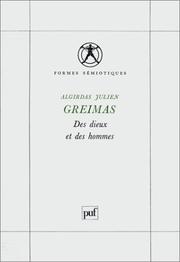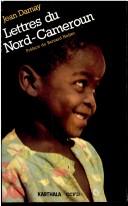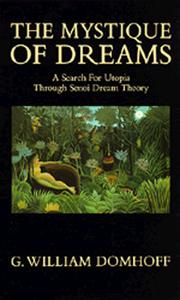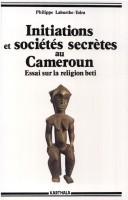| Listing 1 - 7 of 7 |
Sort by
|

ISBN: 2130390102 9782130390107 Year: 1985 Publisher: Paris: PUF,
Abstract | Keywords | Export | Availability | Bookmark
 Loading...
Loading...Choose an application
- Reference Manager
- EndNote
- RefWorks (Direct export to RefWorks)
Comparative religion --- Ethnology. Cultural anthropology --- Lithuania --- Mythology, Baltic --- Mythologie balte --- Gods, Baltic --- 299.1 --- 398.2 --- -293 --- Baltic gods --- Baltic mythology --- Latvian mythology --- Lithuanian mythology --- Mythology, Latvian --- Mythology, Lithuanian --- Mythology, Prussian (Baltic tribe) --- Mythology, Yatvyag --- Prussian mythology (Baltic tribe) --- Yatvyag mythology --- Godsdiensten van de Ariërs en de Indo-Europeanen --- Volksverhalen. Sprookjes. Sagen. Legenden. Kluchten --- Godsdiensten van de Germanen en de Wenden --- Mythology, Baltic. --- 398.2 Volksverhalen. Sprookjes. Sagen. Legenden. Kluchten --- 299.1 Godsdiensten van de Ariërs en de Indo-Europeanen --- 293 --- Gods, Baltic - Lithuania
Book
ISBN: 3525538081 9783525538081 Year: 1985 Volume: 135 Publisher: Göttingen: Vandenhoeck und Ruprecht,
Abstract | Keywords | Export | Availability | Bookmark
 Loading...
Loading...Choose an application
- Reference Manager
- EndNote
- RefWorks (Direct export to RefWorks)
Dan (Tribe of Israel) --- Jews --- History --- Bible --- History of Biblical events --- 222.5 --- 299.24 --- -#GROL:SEMI-22<08> Fors 135 --- Hebrews --- Israelites --- Jewish people --- Jewry --- Judaic people --- Judaists --- Ethnology --- Religious adherents --- Semites --- Judaism --- Twelve tribes of Israel --- Jozua. Rechters. Ruth --- Godsdienst van de Hebreeën. Oud-israëlitische godsdienst. Eloisme --- -222.5 --- 299.24 Godsdienst van de Hebreeën. Oud-israëlitische godsdienst. Eloisme --- -Dan (Tribe of Israel) --- #GROL:SEMI-22<08> Fors 135 --- Bible. --- Judges (Book of the Old Testament) --- Quḍāh (Book of the Old Testament) --- Shofṭim (Book of the Old Testament) --- History of Biblical events. --- Jews - History - To 586 B.C
Book
ISBN: 349600830X Year: 1985 Publisher: Berlin : Reimer,
Abstract | Keywords | Export | Availability | Bookmark
 Loading...
Loading...Choose an application
- Reference Manager
- EndNote
- RefWorks (Direct export to RefWorks)
Aboriginal Australians --- Aranda (Australian people) --- Material culture. --- Social life and customs. --- Aranda tribe --- Aranta (Australian people) --- Arunndta (Australian people) --- Arunta (Australian people) --- Aboriginals, Australian --- Aborigines, Australian --- Australian aboriginal people --- Australian aboriginals --- Australian aborigines --- Australians, Aboriginal --- Australians, Native (Aboriginal Australians) --- Native Australians (Aboriginal Australians) --- Material culture --- Social life and customs --- Ethnology --- Indigenous peoples
Book
Abstract | Keywords | Export | Availability | Bookmark
 Loading...
Loading...Choose an application
- Reference Manager
- EndNote
- RefWorks (Direct export to RefWorks)
#SBIB:96G --- #SBIB:39A73 --- Kongo (African people) --- -Bakongo (African people) --- Bakongo (African tribe) --- Cabinda (African people) --- Congo (African people) --- Fjort (African people) --- Frote (African people) --- Ikeleve (African people) --- Kakongo (African people) --- Kileta (African people) --- Koongo (African people) --- Nkongo (African people) --- Wacongomani (African people) --- Bantu-speaking peoples --- Ethnology --- Geschiedenis van Afrika --- Etnografie: Afrika --- History --- Kongo Kingdom --- -History --- Kongo (Peuple d'Afrique) --- Bakongo (African people) --- Kingdom of Kongo --- History. --- Histoire --- Congo. Geschiedenis. --- Kongo [Tribu]. --- Congo. Histoire. --- Kongo [Volksstam].

ISSN: 02906600 ISBN: 2865371212 9782865371211 Year: 1985 Publisher: Paris: Karthala,
Abstract | Keywords | Export | Availability | Bookmark
 Loading...
Loading...Choose an application
- Reference Manager
- EndNote
- RefWorks (Direct export to RefWorks)
Third World: economic development problems --- Ivory Coast --- Bété (African people) --- Bété (Peuple d'Afrique) --- Côte d'Ivoire --- Economic conditions --- #SBIB:39A73 --- Masa (African people) --- -Masa (African people) --- -Rural development --- -Community development, Rural --- Development, Rural --- Integrated rural development --- Regional development --- Rehabilitation, Rural --- Rural community development --- Rural development --- Rural economic development --- Agriculture and state --- Community development --- Economic development --- Regional planning --- Banana (African people) --- Masana (African people) --- Massa (African people) --- Massa (African tribe) --- Walai (African people) --- Walia (African people) --- Ethnology --- Etnografie: Afrika --- Social conditions --- Citizen participation --- Social aspects --- Damay, Jean --- Economic conditions. --- Social conditions. --- Bété (African people). --- -Etnografie: Afrika --- Bété (African people) --- Bété (Peuple d'Afrique) --- Developing countries: economic development problems --- -Banana (African people) --- Community development, Rural --- Côte d'Ivoire - Economic conditions - 1960 --- -Bété (African people) --- -Social conditions

ISBN: 0520908341 058510543X 0520060210 0520055047 9780520908345 9780585105437 9780520060210 9780520055049 0521055047 Year: 1985 Publisher: Berkeley : University of California Press,
Abstract | Keywords | Export | Availability | Bookmark
 Loading...
Loading...Choose an application
- Reference Manager
- EndNote
- RefWorks (Direct export to RefWorks)
A fascinating strand of the human potential movement of the 1960s involved the dream mystique of a previously unknown Malaysian tribe, the Senoi, first brought to the attention of the Western world by adventurer-anthropologist-psychologist Kilton Stewart. Exploring the origin, attraction, and efficacy of the Senoi ideas, G. William Domhoff also investigates current research on dreams and concludes that the story of Senoi dream theory tells us more about certain aspects of American culture than it does about this distant tribe. In analyzing its mystical appeal, he comes to some unexpected conclusions about American spirituality and practicality.
Dreams. --- Senoi (Southeast Asian people) --- Utopias. --- NON-CLASSIFIABLE. --- Psychology. --- Social life and customs. --- Ideal states --- States, Ideal --- Utopian literature --- Political science --- Socialism --- Voyages, Imaginary --- Dystopias --- Sakai (Southeast Asian people) --- Semai (Southeast Asian people) --- Senoi (Malaysian people) --- Temiar (Southeast Asian people) --- Ethnology --- Dreaming --- Subconsciousness --- Visions --- Sleep --- Stewart, Kilton, --- United States --- Civilization --- Civilization. --- Barbarism --- Civilisation --- Auxiliary sciences of history --- Culture --- World Decade for Cultural Development, 1988-1997 --- 1960s. --- american culture. --- american spirituality. --- anthropologists. --- cultural anthropology. --- distant tribes. --- dream analysis. --- dream research. --- dream science. --- dreams. --- dreamworkers. --- history of ideas. --- human potential movement. --- malaysian tribe. --- mystical. --- nonfiction. --- popular psychology. --- practical approach. --- psychologists. --- psychology of dreams. --- science of dreams. --- senoi dream theory. --- senoi. --- social psychology. --- social science. --- sociology. --- utopia. --- western world.

ISBN: 9782865371426 2865371425 Year: 1985 Volume: 2 Publisher: Paris: Karthala,
Abstract | Keywords | Export | Availability | Bookmark
 Loading...
Loading...Choose an application
- Reference Manager
- EndNote
- RefWorks (Direct export to RefWorks)
La Nuit, telle est l'appellation paradoxale que les anciens Beti du Cameroun donnaient aux moments les plus mystérieux de leurs rituels et au champ d'action de leurs sorciers. A partir des vestiges existants et des témoignages des vieillards, l'auteur s'efforce de retrouver l'architecture d'une antique religion africaine où s'imbriquaient - avec les croyances en un Dieu cosmique lointain et en un démiurge plus proche, garant de la morale - le respect de "forces" diverses, telles le ciel et la terre, le soleil et la lune, la foudre et le nombre neuf, l'action des ancêtres ou la crainte de l'animal évou qui habite les entrailles des hommes en leur donnant les pouvoirs de la sorcellerie cannibale.Les interdits, les talismans, les connaissances médicales, la divination, les rites de passage pour la naissance, l'adolescence ou le deuil, permettaient de se protéger de ces forces ou de se les asservir. A part la citadelle constituée par la croyance en la sorcellerie, ces pratiques se sont effondrées avec la modernisation rapide du Cameroun méridional. Mais la vision du monde sous-jacente, riche de sa poétique originale et de sa rationalité propre, influe encore aujourd'hui sur la vie quotidienne et même sur la conception locale des religions contemporaines.Cet ouvrage constitue le second de la série Minlaaba, d'un nom du village, centre de l'enquête. Le premier volume, intitulé Les Seigneurs de la Forêt, traitait des traditions historiques et de l'organisation sociale des anciens Beti. Le troisième abordera le problème complexe de leur conversion massive au christianisme en l'espace de trente ans.
Beti (African people) --- Initiation rites --- Secret societies --- Witchcraft --- Beti (Peuple d'Afrique) --- Rites d'initiation --- Sociétés secrètes --- Sorcellerie --- Rites and ceremonies --- Religion --- Rites et cérémonies --- #SBIB:39A73 --- #SBIB:39A10 --- 299.6 --- -Beti (African people) --- -Initiation rites --- -Secret societies --- -Fraternities --- Hazing --- Ritual --- Societies --- Sociology --- Initiations (into trades, societies, etc.) --- Initiations --- Initiatory rites --- Betsi (African people) --- Beti (Bantu tribe) --- Bantu-speaking peoples --- Ethnology --- Ewondo (African people) --- Etnografie: Afrika --- Antropologie: religie, riten, magie, hekserij --- Godsdiensten van Bantoes, Niloten, Soedannegers, Pygmeeën, Kaffers, Hottentotten, Bosjesmannen, Galla's, Bassuto's, Zoeloes --- Religion. --- Rites and ceremonies. --- -Etnografie: Afrika --- 299.6 Godsdiensten van Afrikaanse zwarte volkeren --- 299.6 Godsdiensten van Bantoes, Niloten, Soedannegers, Pygmeeën, Kaffers, Hottentotten, Bosjesmannen, Galla's, Bassuto's, Zoeloes --- Godsdiensten van Afrikaanse zwarte volkeren --- -299.6 Godsdiensten van Afrikaanse zwarte volkeren --- Fraternities --- Sociétés secrètes --- Rites et cérémonies --- Beti (African people) - Rites and ceremonies --- Beti (African people) - Religion --- Initiation rites - Cameroon --- Secret societies - Cameroon --- Croyances --- Rituels --- Médecine --- Afrique centrale --- Ethnologie --- Cultes --- Mort --- Deuil --- Naissance --- Cameroun
| Listing 1 - 7 of 7 |
Sort by
|

 Search
Search Feedback
Feedback About UniCat
About UniCat  Help
Help News
News